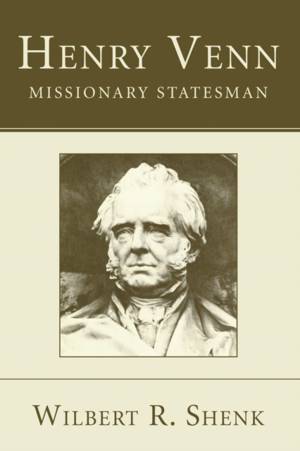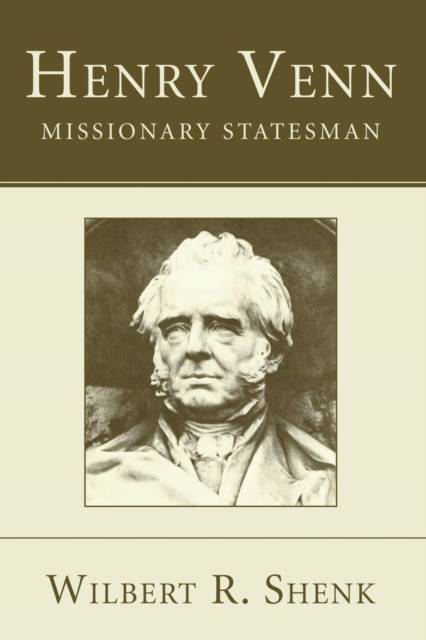
- Retrait gratuit dans votre magasin Club
- 7.000.000 titres dans notre catalogue
- Payer en toute sécurité
- Toujours un magasin près de chez vous
- Retrait gratuit dans votre magasin Club
- 7.000.0000 titres dans notre catalogue
- Payer en toute sécurité
- Toujours un magasin près de chez vous
Description
Henry Venn was born and bred among the British evangelical aristocracy at Clapham. Wilberforce, Grant, Macaulay, Stephen, and Thornton were at the height of their powers -- leading the campaign against slavery, promoting public morals, founding philanthropic and missionary societies -- at the turn of the nineteenth century. As powerful leader of the most prominent British missionary society from 1841 to 1872, Venn unhesitatingly used his connections with politicians and statesmen to further the missionary cause. He often found himself at odds with government, but he mastered the art of lobbying skillfully for his interest. Henry Venn was a man of generous hospitality who entertained countless guests in his home. Sir Leslie Stephen, his nephew, conjectured that in evangelical circles noted for their somber mood Venn must have been something of an embarrassment with his irrepressible humor. Venn was an outstanding administrator. Early on he perceived the need to provide the missionary movement with a clear theoretical framework. Out of his search for principles of missionary action emerged the indigenous church ideal that has figured prominently in all missionary thinking since. Henry Venn is perennially up-to-date. Anyone reading him who is concerned with today's Church in today's world will find echoes ringing all the time. It is good to have a comprehensive presentation of him; doubly valuable when it is from one who, like Dr. Shenk, is both a scholar and a missionary administrator himself. --Andrew F. Walls author of 'The Missionary Movement in Christian History' (1996) and 'The Cross Cultural Process in Christian History' (2002) 'The vision is for days yet to come, ' said the prophet. It is with such a vision that this book is concerned--the vision of one of the great missionary leaders of the past, a vision which even today remains to be fully explored. The author presents a careful historical review of Henry Venn's achievements in the setting of his age. He thus enables our own generation, more than a century later, to see with Venn's eyes, to trace the steps by which he advanced toward the great aim of churches in mission throughout the world. --Hans-Werner Gensichen Heidelberg University Wilbert R. Shenk is Senior Professor of Mission History and Contemporary Culture at Fuller Theological Seminary. His other books include 'Changing Frontiers of Mission' (1999).
Spécifications
Parties prenantes
- Auteur(s) :
- Editeur:
Contenu
- Nombre de pages :
- 192
- Langue:
- Anglais
- Collection :
- Tome:
- n° 6
Caractéristiques
- EAN:
- 9781597525480
- Date de parution :
- 30-01-06
- Format:
- Livre broché
- Format numérique:
- Trade paperback (VS)
- Dimensions :
- 146 mm x 237 mm
- Poids :
- 381 g

Les avis
Nous publions uniquement les avis qui respectent les conditions requises. Consultez nos conditions pour les avis.






